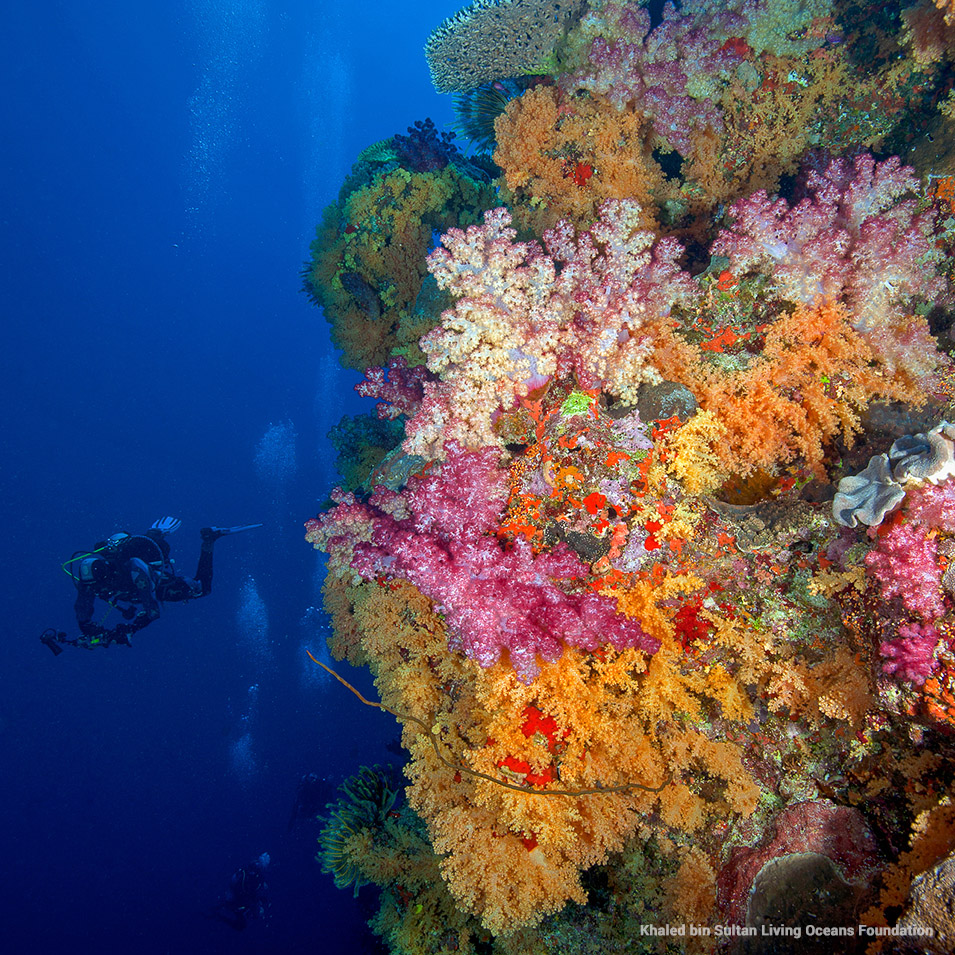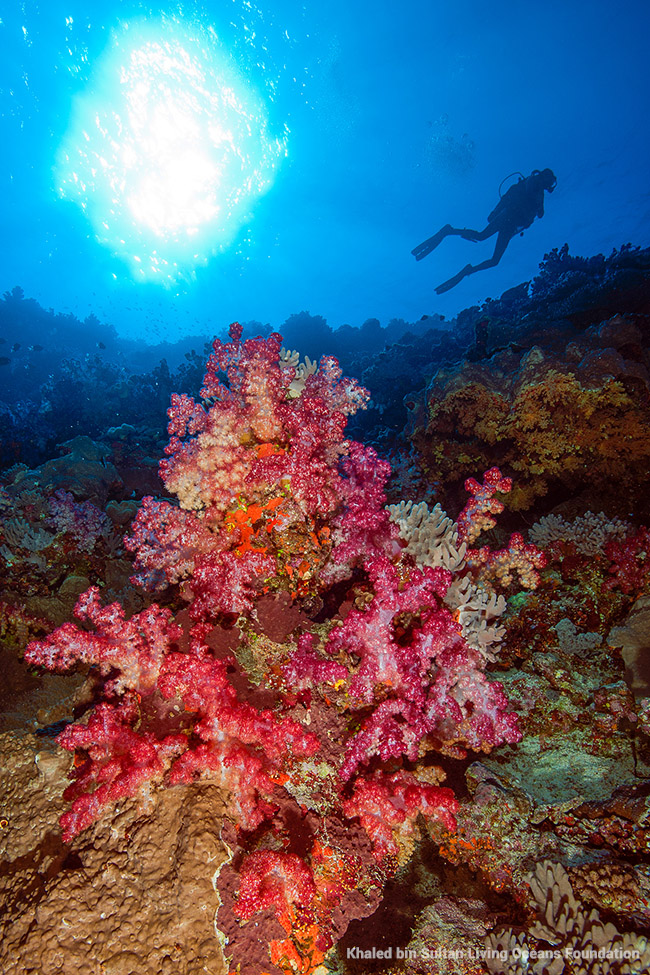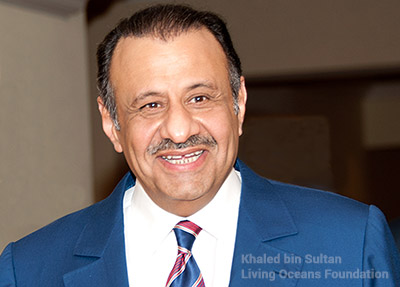
Scientists estimate that the World has lost more than half of its coral reefs, and we could lose the rest by the end of the century, according to a report of the Global Reef Expedition that was released early this week at Marseille, France. Tonga was one of 16 countries surveyed in the 10-year research mission spearheaded by the Khaled bin Sultan Living Oceans Foundation.
Climate change, overfishing, pollution and coastal development are some of the factors causing the rapid decline.
To combat the decline of coral reefs around the world, due to various natural and anthropogenic factors, the Khaled bin Sultan Living Oceans Foundation embarked on a Global Reef Expedition – the largest coral reef survey and mapping expedition in history —to aid in the preservation and conservation of coral reefs on a global scale.
The 10-year research mission assessed the status and major threats to coral reefs around the world, using a three-pronged approach of science, education, and outreach.
The Global Reef Expedition circumnavigated the globe, surveying and mapping over 1,000 reefs in 16 countries across the Atlantic, Pacific, and Indian Oceans as well as the Red Sea.

After travelling over 50,000 kilometers, conducting more than 12,000 scientific dives, and educating over 6000 local students and community leaders, the Global Reef Expedition is finally complete.
This massive international effort turned into the largest coral reef survey and mapping expedition in history, as the Foundation responded to requests from countries to study their coral reefs.
The Expedition brought together a team of over 200 scientists, conservationists, government officials, and local experts. Scientists on the Expedition also pioneered new ways to map coral reefs by combining high-resolution satellite imagery with data collected in the field, producing over 65,000 square kilometres of coral reef habitat maps. Together, these maps and surveys make up the most comprehensive standardized data set yet collected for coral reefs.
“The Global Reef Expedition was a monumental achievement,” said Sam Purkis, KSLOF’s Chief Scientist as well as Professor and Chair of the Department of Marine Geosciences at the University of Miami’s Rosenstiel School of Marine and Atmospheric Science. “It owes its success to nimble planning and a common vision shared by a broad group of forward-thinking scientists, managers, and educators. I have no doubt that the baseline determined by the GRE for the world’s reefs will remain a reference for centuries to come.”
NASA is now using maps from the Global Reef Expedition to help train their supercomputers to map the rest of the world’s coral reefs from space, while scientists at the University of Miami are using the data to model factors that contribute to the health and resiliency of coral reefs.
“This Expedition amassed a treasure-trove of data that is now being used for coral reef conservation,” said Alexandra Dempsey, the Director of Science Management at KSLOF, who presented the Foundation’s findings from the Global Reef Expedition this week at the World Conservation Congress. She says the data provide a clear snapshot of the status and major threats to coral reefs at a critical point in time. These findings will be used as a benchmark for future research and analysis. They can also help countries prioritize areas for conservation and track changes to their reefs over time. “Several countries, including The Bahamas, Jamaica, Fiji, and the Cook Islands, used data collected on the Expedition to enact new conservation measures, such as marine protected areas and fishery closures, to protect their reefs.”
Evidence of the unfolding coral reef crisis was observed on reefs around the world, with climate change and outbreaks of predatory crown-of-thorns starfish causing substantial damage, even on some of the most remote and undisturbed coral reefs on Earth. The vast majority of reefs surveyed also showed signs of overfishing, with few large fish and lower than expected fish biomass. However, the Expedition also encountered pockets of vibrant reefs with high coral cover and thriving reef fish communities, providing a glimmer of hope that under the right conditions, some reefs may be able to survive into the future.

Prince Khaled bin Sultan Abdulaziz Al-Saud of Saudi Arabia formally announced the conclusion of the Global Reef Expedition this week, at the IUCN World Conservation Congress. “I launched the Global Reef Expedition to help bring about a new era of knowledge about coral reefs and the challenges they face,” he said.
The prince, who funded and spearheaded this research mission, said, “I knew that this would require a gigantic translocation of resources, cutting-edge technology, and bringing expertise to some of the most remote coral reefs in the world. I did realize that this is not an easy task to achieve, yet my hope in fulfilling this mission never faded.”

The Khaled bin Sultan Living Oceans Foundation a US-based non-profit environmental organization that protects and restores the world’s oceans through scientific research, outreach, and education. As part of its commitment to Science Without Borders®, the Living Oceans Foundation provides data and information to organizations, governments, scientists, and local communities so that they can use the latest science to work toward sustainable ocean protection.



